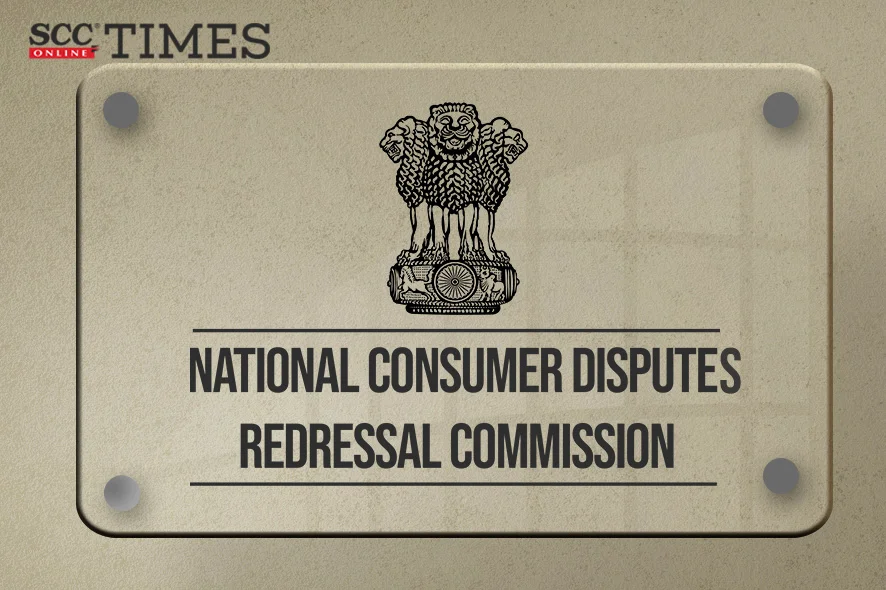National Consumer Disputes Redressal Commission (NCDRC): While considering the instant appeal under Section 19 of the Consumer Protection Act, 1986 challenging the order of Chhattisgarh State Disputes Redressal Commission dismissing the appellant’s complaint regarding rejection of her insurance claim by Aviva Life Insurance; the Bench of Subhash Chandra, Presiding Member and Sadhana Shanker, Member, upheld the decision of the State Commission noting that the Deceased Life Assured (DLA) had failed to disclose material facts in the Policy Proposal, therefore violating the principle of ubberima fidei (utmost good faith), hence, Aviva Life Insurance had rightfully repudiated the claims of the appellant.
Background: The appellant’s late husband had availed two life insurance policies dated 22-10-2011 for a sum of Rs 2,07,297 and on 24-10-2011 for Rs.75,00,000 respectively from Aviva Life Insurance. The appellant was the nominee in both policies. However, on the intervening night of 23/24-12-2011, the insured died in his sleep. A death certificate was issued by the Municipal Corporation, Bhilai and a postmortem was conducted following an FIR registered with the Durg police. The report of the postmortem did not determine the cause of death specifically and examination of the viscera by the State Forensic Test Laboratory, Raipur (FSL) on reference by the Police indicated presence of alcohol but no poison was found.
The appellant filed claims as the nominee of the Deceased Life Assured (DLA) which were rejected by Avivia on the basis of investigations by them in view of the claim being within two years of the commencement of the policies. The ground of repudiation of the claim were that the DLA had a history of criminal charges under Section 302, Penal Code, 1860 and that he had received medical or surgical treatment earlier and received treatment, inter alia, for bone fracture or alcohol. Since DLA had failed to disclose this information while availing the policies, it was violative of the principle of ubberima fidei on the basis of which the insurance policies are issued.
Aggrieved with the rejection of claims, the appellant approached the State Commission which was dismissed by the impugned order. Therefore, the appellant approached the NCDRC praying to set the impugned order aside and to allow the claims under the policies with interest @ 18% and compensation of Rs 1,00,000/- for mental agony and Rs 20,000/- for litigation costs.
Contentions: The appellant challenged the impugned order primarily on the grounds that there was no nexus between the pre-existing disease allegedly suppressed by the DLA at the time of obtaining the policies. It was contended that the postmortem did not conclusively establish the cause of death failed to find any presence of poison in the viscera to establish any fraud or suppression of material facts. It was argued that the repudiation on the ground of alleged connection between the DLA’s death and the criminal charges against him, was arbitrary.
Per contra, the respondent relied upon the Policy proposal which required disclosure of information regarding criminal cases, if any, prior hospitalization and alcohol consumption by the DLA. It was argued that there was wilful suppression of material facts which was contrary to the principle of ubberima fidei.
Commission’s Assessment: Perusing the facts, contentions and impugned order of the State Commission, the NCDRC noted that in the instant case, the DLA was facing criminal charges in a case of alleged murder. He was a known alcoholic and had been hospitalized for fracture of leg. However, these facts were not disclosed in the proposal form and the same were also not denied.
The Commission relied on several cases of the Supreme Court which had emphasized that “a contract of insurance is a contact of ubberima fidei (utmost good faith)” and an assured is under a solemn obligation to make a true and full disclosure of the information on the subject which is within his knowledge. The insurer is well within its rights to repudiate the claim in case of failure on part of the insured to disclose the material facts.
In the light of the settled position of law as above-mentioned, the Commission held that the contention of the appellant that the cause of death was not established or was not related to the information stated to have been withheld in the proposal form cannot be sustained.
The Commission pointed out that DLA was under obligation to disclose all material facts known to him at the time of availing the policy. It is not material whether the cause of death was related to or not related to the facts not disclosed. The investigations of the respondent have revealed facts which were admittedly not disclosed at the time of the DLA’s proposal for the policy. These have not been controverted by the appellant. Hence, Aviva cannot be faulted for repudiating the claim on the basis of non-disclosure of material facts.
[Shalini Srivastava v. Avivia Life Insurance Co. Ltd., 2024 SCC OnLine NCDRC 74, decided on 23-04-2024]
Order by Subhash Chandra, Presiding Member
Advocates who appeared in this case :
For appellant- Azim H Laskar and Bikas Kargupta, Advocates
For respondent- Joydip Bhattacharya, Advocate







